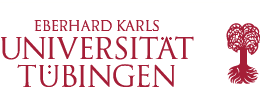Visual information processing in perception and action
Summer term 2021 / Fr. 14:15-15:45 (virtual using Zoom)
Guests are welcome!
Note, that the colloq will be held virtual using
video-conferencing software (Zoom). For instructions of how to join
us, please see the following room in Ilias:
https://ovidius.uni-tuebingen.de/ilias3/goto.php?target=crs_2525165.
- 2021-04-09 Fri 16:15-17:45
- Kriti Bhatia (University of Tübingen): Weber's law and grasping (discussion of current work by Ch. Löwenkamp, K. Bhatia, and VH Franz)
- 2021-04-16 Fri NOTE: Different time: 10:15-11:45
- Iris Zerweck (University of Tübingen): Current status EEG and fMRI
- 2021-04-23 Fri 14:15-15:45
- Joint planning session: Please attend this session if you want to give a talk in our colloquium (eg. BSc/MSc students)
- 2021-04-30 Fri 14:15-15:45
- No colloq (retreat of computer-science department)
- 2021-05-07 Fri 14:15-15:45
- Lukas Sodan (planning-talk of BSc-thesis)
- Sascha Meyen: The Ambiguity of Assuming Log-Normal RT Distributions
- 2021-05-14 Fri 14:15-15:45
- Hanna Disch (planning-talk of BSc-thesis)
- Journal Club: Iris Zerweck presents: Szumska, I., Baran, W., Pinkas, E., & van der Lubbe, R. H. (2019). Does the influence of near-threshold primes depend on the type of task? Consciousness and Cognition, 76.
- 2021-05-21 Fri 14:15-15:45
- No colloq today (postponed due to V-VSS 2021).
- 2021-06-04 Fri 14:15-15:45
- Manuel Streich (planning-talk of BSc-thesis)
- Extended Journal Club: Florian Friedrich talks on single trial analyses in EEG. Corresponding paper: Bryce, D., Szűcs, D., Soltész, F., Whitebread, D. (2011). The development of inhibitory control: An averaged and single-trial Lateralized Readiness Potential study. NeuroImage 57, 671-685.
- 2021-06-11 Fri 14:15-15:45
- No colloq today (postponed).
- 2021-06-18 Fri 14:15-15:45
- Journal Club: Kriti Bhatia presents Navon, G., & Ganel, T. (2020). Consciously monitored grasping is vulnerable to perceptual intrusions. Consciousness and cognition, 85, 103019.
- Journal Club: Inés Schönmann presents: Stein, T., Kaiser, D., Fahrenfort, J.J., van Gaal, S. (2021). The human visual system differentially represents subjectively and objectively invisible stimuli. PLoS biology 19(5)
- 2021-06-25 Fri 14:15-15:45
- Iris Zerweck: Investigating the dissociation paradigm in EEG & fMRI.
- 2021-07-02 Fri 14:15-15:45
- Lasse Schlör: Eliciting code-modulated visual evoked potentials by non-recognizable presentation of m-sequences (Planning talk MSc-thesis).
- Journal Club: tba.
- 2021-07-09 Fri 14:15-15:45
- Kriti Bhatia: Garner interference and the nature of cognitive representations in perception & action.
- Journal Club: Sascha Meyen presents: Grice, J. W., Medellin, E., Jones, I., Horvath, S., McDaniel, H., O’lansen, C., & Baker, M. (2020). Persons as effect sizes. Advances in Methods and Practices in Psychological Science, 3(4), 443-455.
- 2021-07-16 Fri 14:15-15:45
- No colloq (Farewell Colloquium for Prof. K. J. Lange).
- 2021-07-23 Fri 14:15-15:45
- Sascha Meyen: Contextual cueing and indirect task advantages.
- 2021-07-30 Fri 14:15-15:45
- Hanna Disch (result-talk of BSc-thesis)
- Journal Club: Hamit Basgöl presents: Zhao, S., Chait, M., Dick, F., Dayan, P., Furukawa, S., & Liao, H.-I. (2019). Pupil-linked phasic arousal evoked by violation but not emergence of regularity within rapid sound sequences. Nature Communications, 10(1). https://doi.org/10.1038/s41467-019-12048-1
- POSTPONED TO: 2021-08-20 Fri 10:15-11:45
- Manuel Streich (result-talk of BSc-thesis)
- Lukas Sodan (result-talk of BSc-thesis)
- Your talk:
-
When preparing a talk for our colloquium, please:
- Practice your talk!
- Print the final version of your talk once on paper (6 slides per page) and bring it to the colloquium.
- Send a PDF-file (and if available a PowerPoint file) of the final version of your talk by email to V. Franz before the talk. Details for the PDF-file: 1 slide per page and make sure that you do NOT create separate pages for each step of the animations.
- Adhere to the time-limits during your talk. Practice that!
- Present data as graphs (supplemented but not supplanted by numerical statistics).
- Provide your name etc. at the title-slide.
- Practice your talk!
- Journal club:
- 10 min presentation (please make sure you adhere to these time-limits!). In the journal club a member of our group present an influential, scientific article relevant to our current work. Articles should typically be recent (e.g., 3-5 years), but could also be older if of special interest. Articles will be available at our file-server (with the path being e.g., EC-STORE/literature/articles/journal-club-WS2020-21), please ask a member of our group if you do not know how to access those. Please make sure that a meaningful reference (containing title, author, year, journal) is presented at this web-page (either by you or by sending an email to V. Franz) and that the full APA-reference in the correct APA-formatting is present on the title-slide of your presentation.

